The Mediterranean region hosts 60% of the world’s water-poor population with less than 1,000m³ per inhabitant, per year. That’s 20 million people, especially in the region’s southern and eastern countries, who lack access to drinking water. Amidst this backdrop, Tunisia hosted the 5th Mediterranean Water Forum from February 5th to 7th, 2024, a pivotal event co-organized by the Tunisian Government, Ministry of Agriculture, Hydraulic Resources, and Fisheries alongside the Union for the Mediterranean (UfM). This gathering brought together experts, policymakers, and industry stakeholders in a concerted effort to forge pathways toward effective water management in the Mediterranean. The forum’s timing could not be more critical, addressing the compounded pressures of climate change, warming the region 20% faster than the global average and an unparalleled water scarcity crisis, seeking to lay down strategies for cooperation and innovation in water stewardship for the region’s future.
Water diplomacy to tackle water Scarcity?
The specter of water stress haunts the Mediterranean, with the World Resources Institute cataloging numerous countries within the region under the « high » to « extremely high » water stress categories. This precarious situation, where renewable water resources per capita plummet below the 1,000 cubic meters mark annually, places millions at the bring not just threatening their livelihoods but also heightening the risk of exacerbating conflicts in a region already simmering with geopolitical tensions.
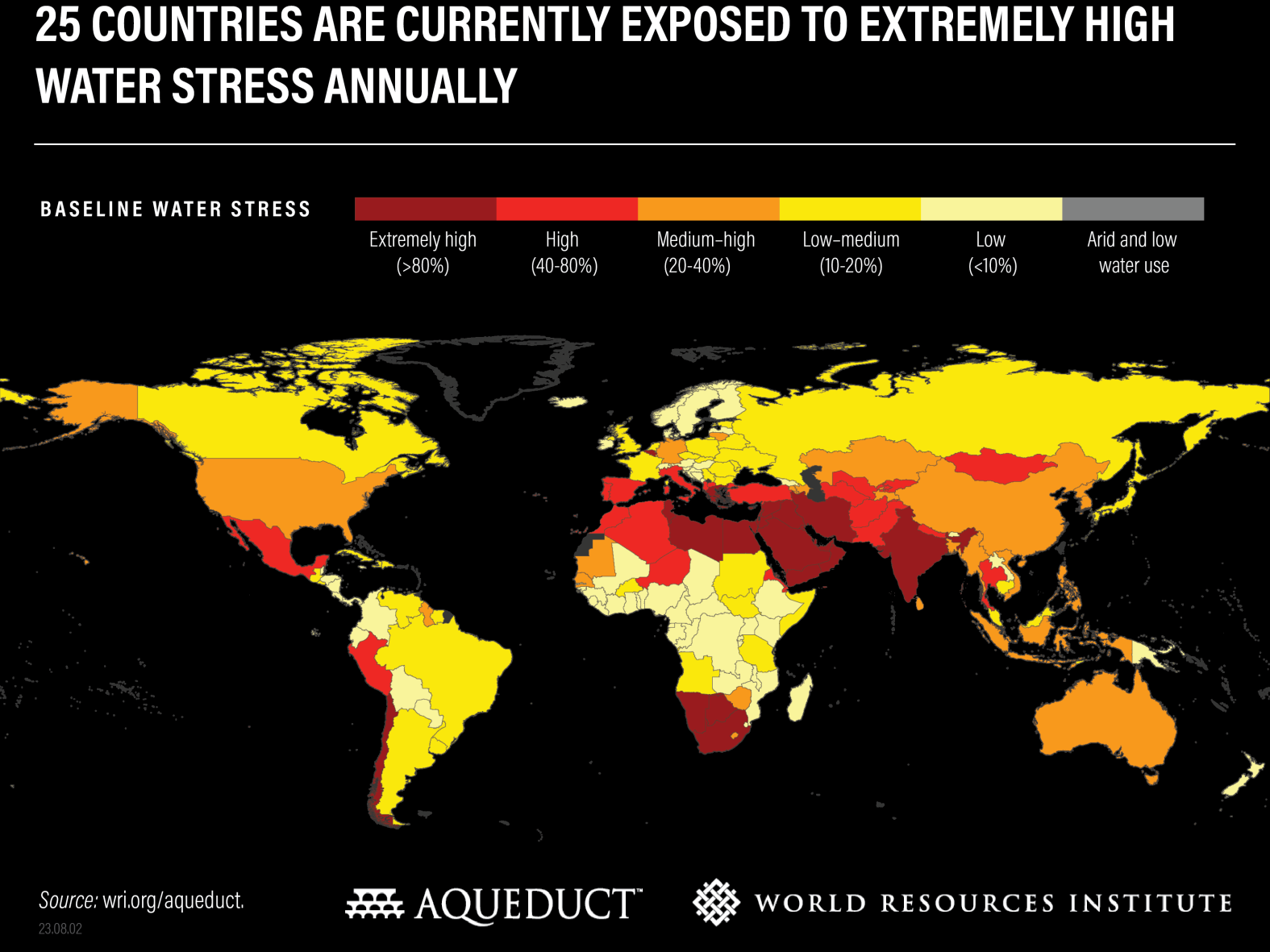
In an era where the sustainability crisis intersects with the adverse effects of climate change and the relentless depletion of natural resources, the imperative for international and regional collaboration has never been more pronounced. Yet, this urgency collides with a growing skepticism towards international agreements and a pivot towards insular geopolitics, making the quest for cooperation all the more challenging.
This complex table calls for innovative diplomatic strategies capable of navigating the intricate web of foreign policy relationships, now more intertwined with the critical resources of water, food, and energy, alongside the overarching shadow of climate change.
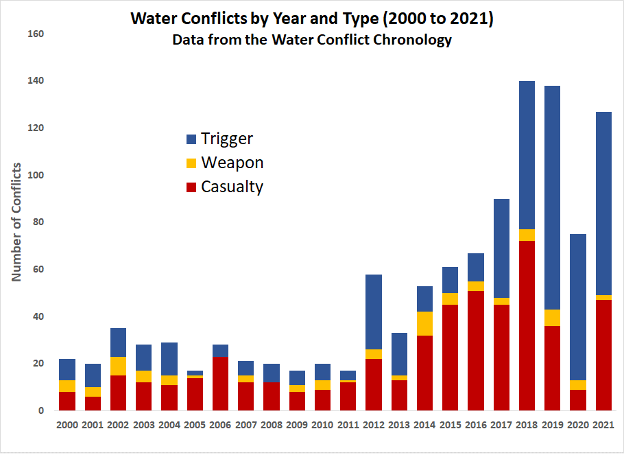
Enter water diplomacy, an emerging paradigm that seeks to marry the realms of water management with foreign policy, geopolitics, and regional cooperation. At its core, water diplomacy endeavors to leverage the traditional tools of diplomacy dialogue, negotiation, and collaboration to defuse potential conflicts over water and foster symbiotic relationships among nations sharing this vital resource. Through this lens, diplomacy emerges not just as a conduit for international relations but as a potent mechanism to secure peace and sustainability in the face of looming water crises.
Blue Peace Middle East: Water as a Bridge for Peace
Amidst the turbulent currents of the Middle East’s water crisis, Switzerland has emerged as a beacon of innovation and peace with its Blue Peace initiative. This non-governmental project, bolstered by support from the Swiss government and the Swiss Agency for Development and Cooperation (SDC), represents a pioneering leap in the realm of water diplomacy. Blue Peace is built on the conviction that water management can serve as a pivotal peacebuilding tool, aiming to reframe water from a potential source of conflict to a bridge for cooperation.
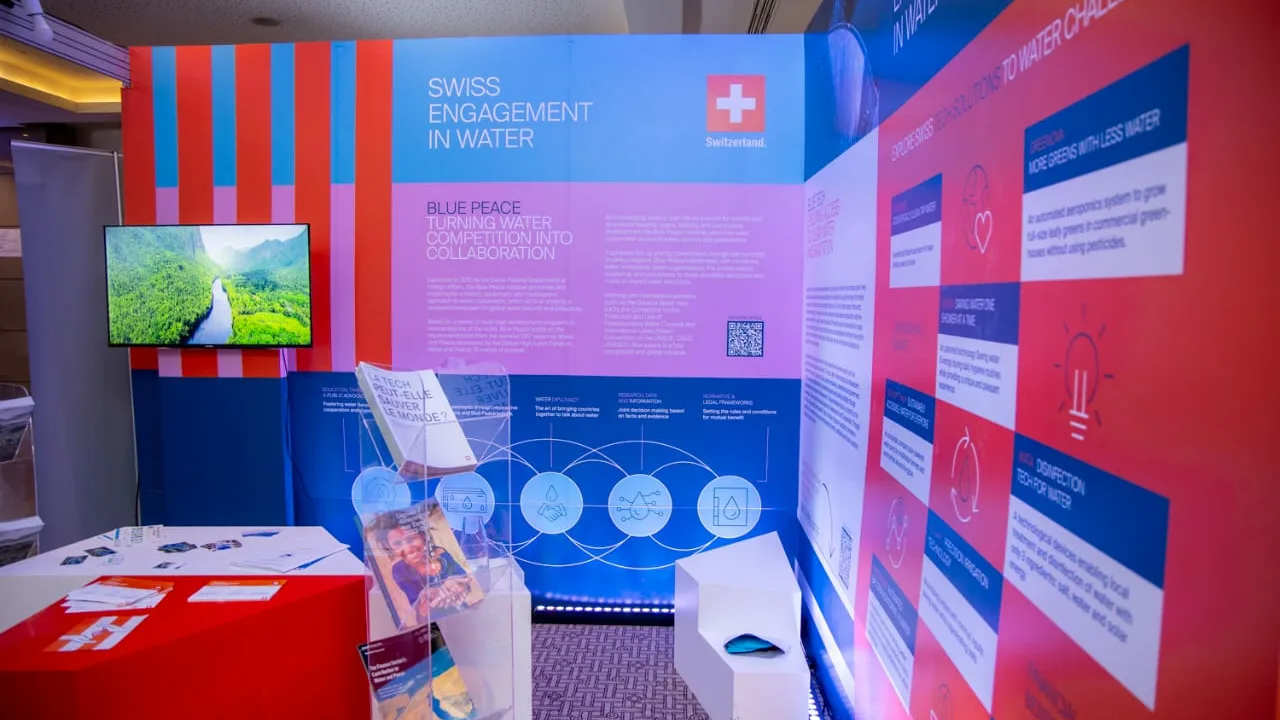
The initiative promotes the shared management of water resources, advocating for dialogue, mutual respect, and collaboration among nations. Blue Peace stands on the belief that cooperative efforts can alleviate water scarcity challenges while concurrently laying the foundations for regional peace and stability. According to Hakam Al Alami, an environmental consultant Financial and Development Manager at Al Alami Money Exchange Company and member of managing committee of Blue Peace, « Blue Peace is unique in that it is the only regionally owned initiative focused on elevating water as a tool of peace rather than conflict. »
We are dedicated to track two diplomacy, striving for win-win situations between upstream and downstream countries, both within nations and across the region.
H.Al Alami
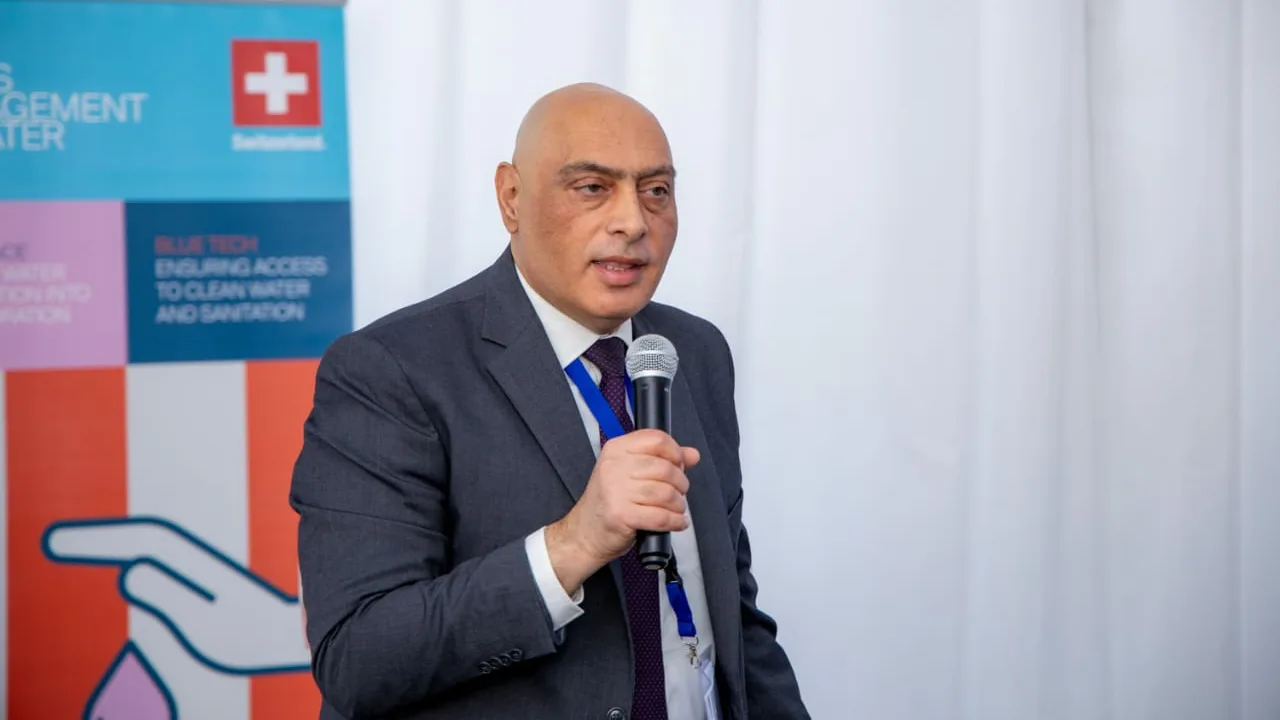
Water disputes are a common occurrence in the Middle East, with many of the region’s rivers and lakes straddling the borders of multiple countries. The construction of dams, such as the Grand Renaissance Dam in Ethiopia on the Nile River, significantly impacts water availability downstream, sparking tensions and threatening livelihoods. Egypt’s President Abdel Fattah EL Sisi has highlighted the gravity of the situation, considering the dam’s effects on Egypt’s water supply as « a matter of life and death, » and has not ruled out military action to ensure equitable water distribution.
Experts warn that global warming could exacerbate these conflicts, predicting the eventual disappearance of vital waterways like the Tigris and Euphrates. Against this backdrop, Blue Peace champions Regional Integrated Watershed Management, advocating for a holistic approach to resource management that emphasizes efficiency and sustainability across the entire region.
Al Alami elaborates on Blue Peace’s philosophy: « We view water not as a zero-sum commodity but as a nexus of cross-cutting issues and interlinkages with numerous sectors in the region. By focusing on the benefits of cooperation rather than the costs of non-cooperation, the path forward becomes clear. » He emphasizes the importance of finding common ground and collaborative solutions.
No single country can tackle its water challenges alone, especially on a regional scale. Blue Peace is committed to uniting thoughts and efforts towards a comprehensive strategy for managing our shared watersheds.
H.Al Alami
Water Diplomacy: Averting Climate Migration Through Sustainable Management
The specter of water scarcity looms large over the Middle East, with the Food and Agriculture Organization (FAO) forecasting economic losses due to water shortages to range between 6 to 14% of the GDP of Middle Eastern countries by 2025. This represents the most substantial predicted loss to GDP from water scarcity globally, underscoring the critical nexus between water management and economic stability. The World Economic Forum has consistently ranked water crises among the top five global risks in terms of impact since 2012, reflecting the urgency of addressing this escalating threat.
The crisis has given rise to the phenomenon of « water refugees, » populations displaced by acute water shortages. In 2017, severe droughts were a key contributor to what was deemed the worst humanitarian crisis since World War II, with 20 million people across Africa and the Middle East forced to abandon their homes.
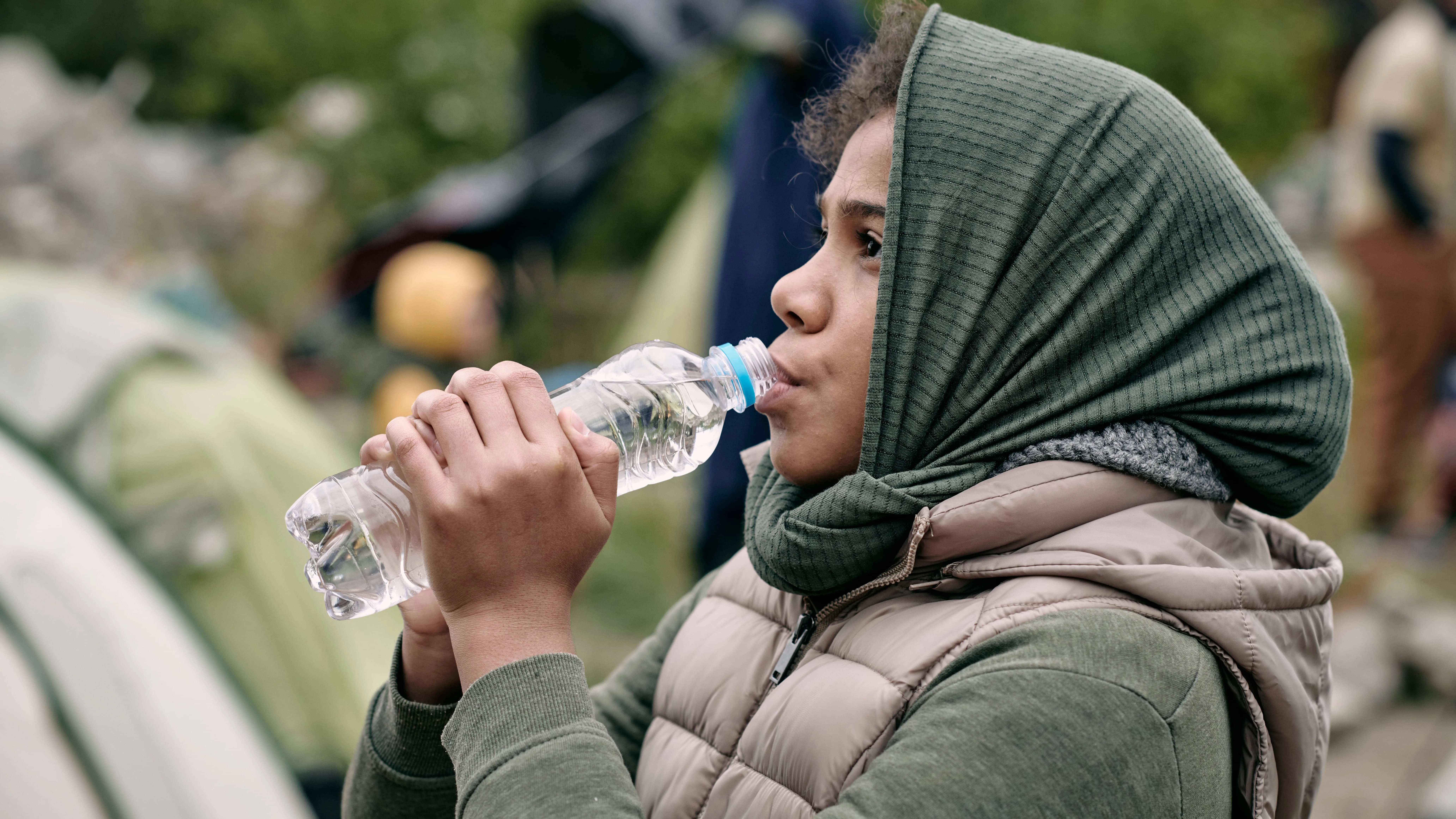
These displacements were driven not only by the direct impacts of drought but also by the resulting food shortages and conflicts. In urban areas, water scarcity severely hampers the delivery of basic social services and the functioning of healthcare systems, while rural communities face intensified challenges due to prolonged drought periods, stressing the agricultural sector and jeopardizing food security.
We aim to find sustainable solutions for water resources management that prevent the uprooting of people from their lands.
H.Al Alami
This statement highlights the initiative’s focus on both preventing displacement and addressing its root causes through strategic water diplomacy.
In Iran’s Khuzestan province and parts of southern Iraq, temperatures nearing 50 degrees Celsius have sparked protests over severe water shortages, a testament to the growing unrest linked to water scarcity. The Middle East, recognized as the driest region globally with twelve of the world’s most water-scarce countries, faces an unprecedented challenge. The Blue Peace Initiative emerges as a crucial diplomatic tool in this context, aiming to mitigate the multifaceted impacts of water scarcity.
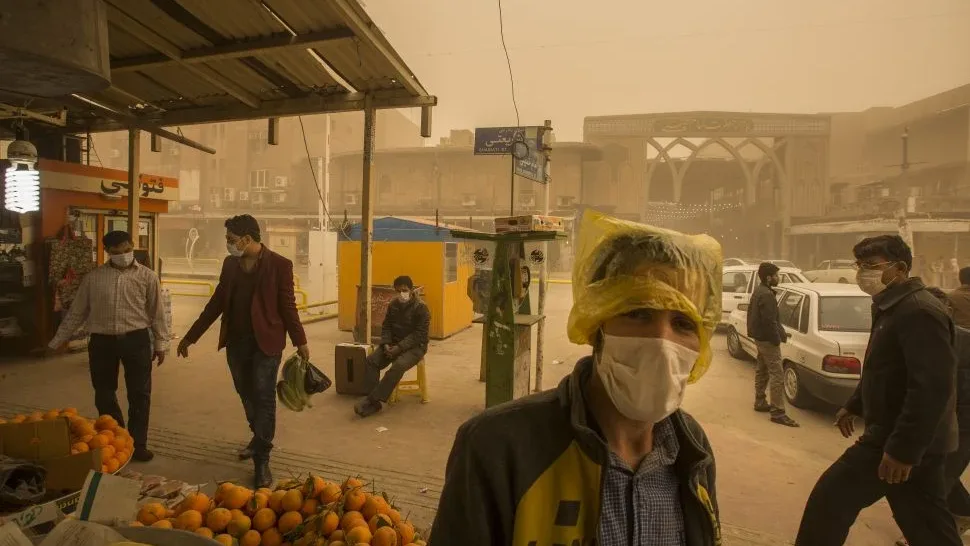
Al Alami further explains the initiative’s dual approach to addressing enforced migration: « We consider the issue through both short-term and long-term lenses. In the short term, we’re identifying solutions to provide marginalized communities with access to safe and adequate water resources, ensuring their dignity and health. Our long-term strategy focuses on understanding the drivers of enforced migration, analyzing the root causes behind these displacement waves. » This comprehensive approach underlines the importance of water diplomacy in crafting both immediate and sustainable responses to one of the most pressing challenges of our time.
Blue Peace Initiative: Charting Success Across the Middle East
The Blue Peace initiative has carved a niche for itself through a series of impactful interventions across the Middle East, demonstrating the tangible benefits of collaborative water management and diplomacy. A prime example of its success is the Tigris Monitoring Project, a cornerstone of the initiative’s efforts to enhance water management along the Tigris River and its tributaries in Iraq. This project focused on the vital aspects of hydrological data collection, storage, analysis, and dissemination. It achieved significant milestones, including the rehabilitation of two existing monitoring stations and the installation of three new gauging stations in the strategically important triple-border region. Furthermore, the initiative organized comprehensive training sessions for local and national experts, significantly improving their capabilities in station operation, maintenance, calibration, and data verification.
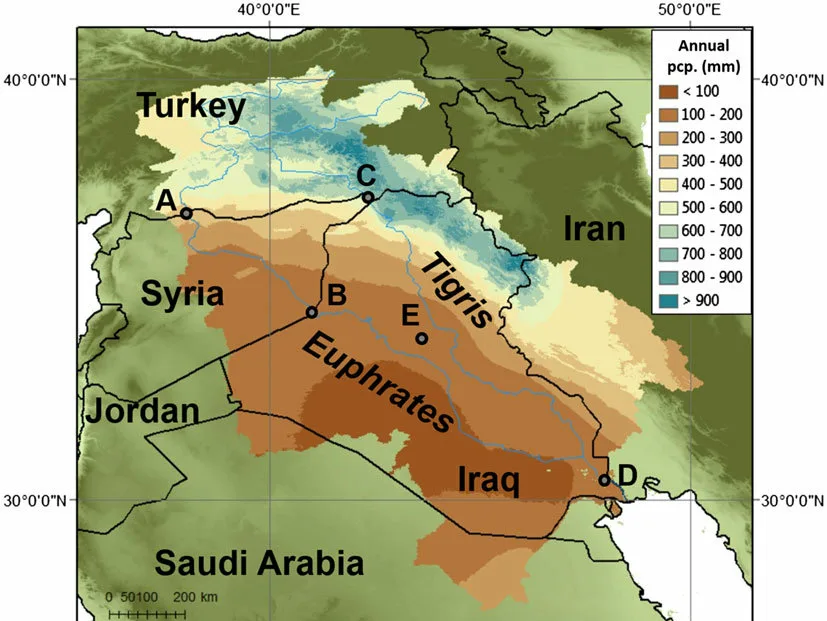
Another hallmark of the Blue Peace initiative’s success is the Water, Energy, Food, and Ecosystem (WEFE) Nexus Programme. This ambitious programme seeks to bolster water, energy, and food security while enhancing ecosystem resilience in the Middle East. Implemented under the auspices of the Inter-Islamic Network on Water Resources Development and Management (INWRDAM) through its WEFE Nexus Hub, the programme serves as a pivotal regional platform for knowledge exchange and the development of practical WEFE Nexus projects. This initiative represents a significant stride towards integrated resource management, reflecting a holistic approach to addressing the interconnected challenges facing the region.
Highlighting the initiative’s strategic approach to regional cooperation, Hakam Al Alami shared insights into the ongoing efforts to quantify and manage water resources more effectively. « We have initiated water footprint index studies for Iraq, Lebanon, Turkey, and Jordan, alongside a comprehensive WEFE Nexus Baseline study. This baseline study surveys the current status of Water, Energy, Food, and Ecosystems in these countries, laying the groundwork for future enhancements, » stated Al Alami. These studies represent critical steps towards understanding and optimizing the use of precious resources in the Middle East, embodying the Blue Peace initiative’s commitment to fostering sustainability and cooperation across borders.
The Path Forward: Sustaining Momentum in Water Diplomacy
As momentum builds, the initiative stands at a critical juncture, poised to broaden its reach and deepen its impact. The future beckons with opportunities to extend the dialogue to more nations, weaving a denser network of collaboration that transcends borders and political divides. Innovation in water management technology and reinforcement of legal frameworks for transboundary water cooperation are crucial next steps. These efforts promise to not only avert the looming threats posed by water scarcity but also to reframe water as a cornerstone of global peace and prosperity.
Hakam Al Alami underscores the essence of the journey ahead, advocating for a shift in perspective towards mutual trust and confidence-building.
By recognizing that natural resources disregard man-made borders and instead encompass regional ecosystems, we can foster a sense of shared ownership and responsibility.
H.Al Alami
This paradigm shift, viewing water and other natural resources as regionally shared assets, marks a critical pivot point in the discourse on environmental diplomacy.
As the Middle East and the broader global community confront the escalating challenge of water scarcity, the ethos of the Blue Peace initiative shines as a beacon of hope. In the intricate ballet of international relations, water has transcended its role as a mere element of survival to become a pivotal instrument of peace. Blue Peace’s journey reaffirms the belief that diplomacy, rooted in collaboration and shared visions for a sustainable future, can thrive even in the most arid landscapes. This initiative paves the way for a new era of cooperation, promising a harmonious blend of peace and prosperity for nations united by the shared waters that sustain life on Earth.

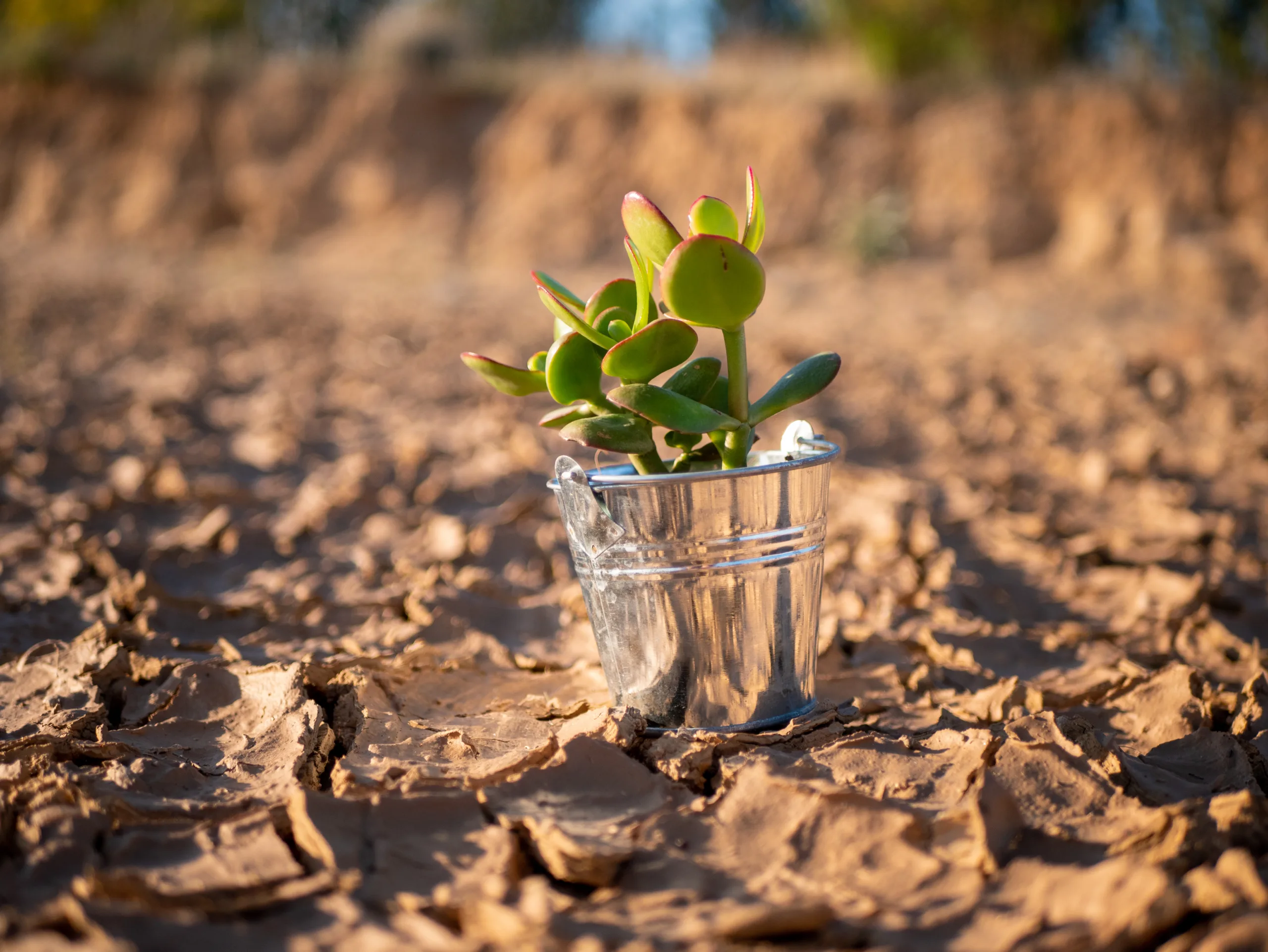
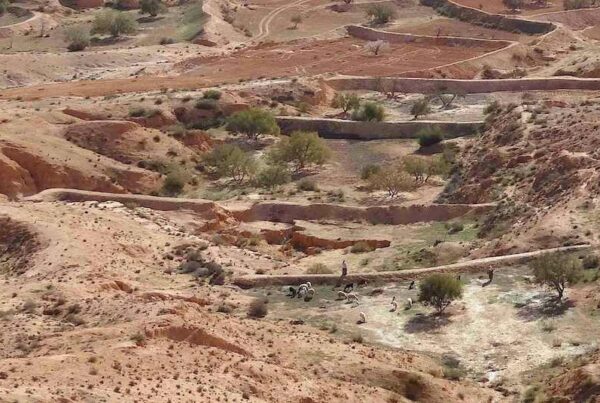

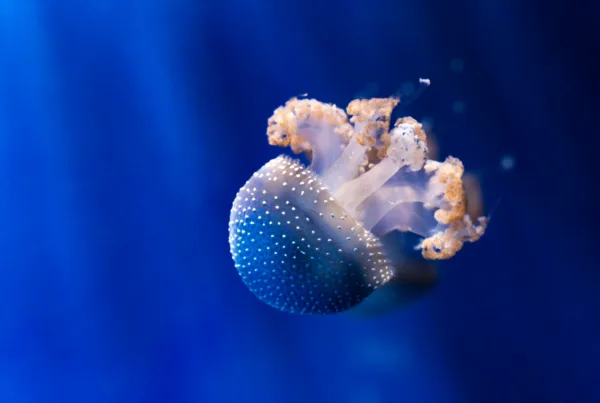
Great paper for an essential issue!